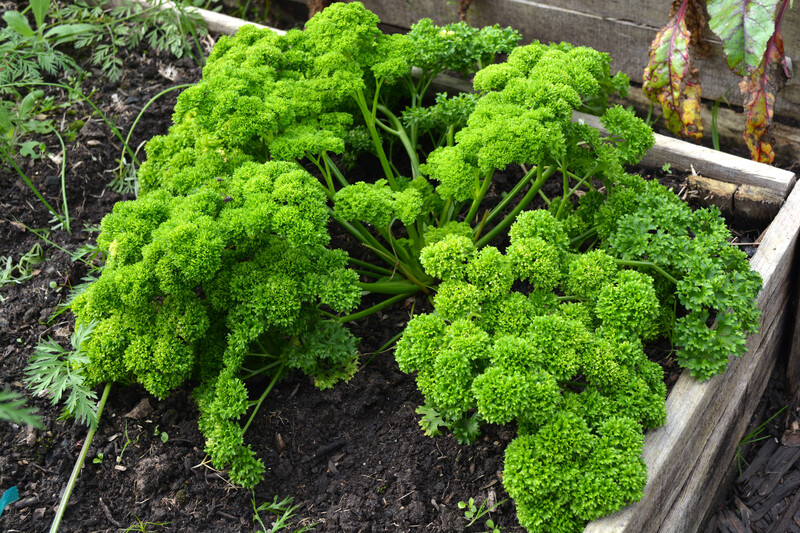Discover the Art of Zen Gardening for a Harmonious Outdoor Space
Posted on 05/09/2025
Discover the Art of Zen Gardening for a Harmonious Outdoor Space
Imagine stepping outside to a sanctuary of serenity, where each stone, plant, and grain of sand is thoughtfully placed to evoke peace. Welcome to the enchanting world of Zen gardening -- a timeless Japanese tradition that helps harmonize your outdoor space and your mind alike.
What is Zen Gardening?
Zen gardening, also known as Japanese rock gardening or karesansui, is a unique landscaping style originating from Buddhist temples in medieval Japan. Unlike traditional gardens overflowing with flora, a Zen garden emphasizes minimalism, balance, and symbolism using rocks, gravel, raked sand, carefully selected plants, and simple water features.
The fundamental aim of a Zen garden design is to create a visual and spiritual oasis, offering a space for meditation and contemplation. These gardens reflect nature's essence in a scaled-down, stylized form, inspiring tranquility, mindfulness, and a harmonious outdoor ambiance.

The Core Principles of Zen Garden Design
Before you embark on your journey to create a harmonious Zen-inspired outdoor space, it's vital to understand the foundational principles that guide Zen landscaping.
1. Simplicity (Kanso)
- Simplicity is the heart of Zen gardening. Excess elements are stripped away to focus on what truly matters.
- Each stone or plant has a purpose; unnecessary decor is avoided.
2. Asymmetry (Fukinsei)
- The Zen garden aesthetic values irregularity and natural form.
- Balance in a Zen garden isn't achieved through symmetry but through thoughtful placement and variety.
3. Naturalness (Shizen)
- Elements should appear untouched by human hands, even though they're meticulously arranged.
- The resulting garden celebrates the imperfect beauty found in nature.
4. Subtlety (Yugen)
- Zen gardens often hide their full beauty, suggesting more than they reveal.
- Understated features invite ongoing discovery and contemplation.
5. Stillness and Tranquility (Seijaku)
- The feeling evoked by Zen-inspired outdoor designs is one of deep calm and peace.
- These gardens are intentionally quiet, supporting meditation and mindful observation.
Essential Elements of a Zen Garden
To transform your outdoor area into a Zen oasis, consider integrating the following hallmarks of Japanese rock gardens:
1. Rocks and Stones
- Stones represent islands, mountains, or animals, forming the 'bones' of the garden.
- Groupings often follow odd numbers and natural arrangements, promoting a sense of organic randomness.
2. Gravel or Sand
- White or light-colored gravel is spread and meticulously raked into patterns symbolizing water or waves.
- These patterns evoke a sense of movement and provide a mindful, meditative activity for the gardener.
3. Moss and Minimal Plants
- Mosses, ferns, and subtle shrubs add a delicate touch of green without overwhelming the simplicity of the scene.
- Plants are chosen for texture and form more than for blooms or color.
4. Water Elements
- Classic Zen gardens may not include actual water but imitate its presence with raked gravel or stone layouts.
- If space and climate permit, a small, still pond or bamboo water fountain can enhance tranquility.
5. Pathways and Bridges
- Stepping stones or simple bridges help guide visitors through the garden, encouraging mindful, slow movement.
6. Lanterns and Ornaments
- Ornamental stone lanterns and bamboo fences offer subtle accents, honoring tradition without causing clutter.
How to Design Your Own Zen-Inspired Outdoor Space
Designing a harmonious Zen garden for your outdoor space involves a balance of artistic vision and practical planning. Whether you have a sprawling backyard or a small patio, the following steps will guide you:
Step 1: Choose the Right Location
- Select a quiet corner or area that receives gentle light.
- Ensure privacy to create an intimate and calming retreat.
Step 2: Sketch Your Layout
- Visualize how you want to arrange key elements such as rocks, pathways, and trees. Start with a rough sketch.
- Consider the flow of movement and the views from various angles.
Step 3: Prepare the Ground
- Clear the area of debris and existing grass or plants. If using gravel or sand, lay a weed barrier underneath.
Step 4: Place Stones and Hardscape First
- Arrange rocks and stones in naturalistic groupings. Vary sizes and shapes for authenticity.
- Remember the principle of asymmetry--avoid evenly spaced placements.
Step 5: Add Gravel, Sand, and Rake Patterns
- Pour gravel or sand evenly, then use a wooden rake to create flowing, circular, or linear patterns.
- Periodically change the patterns to meditate and maintain freshness.
Step 6: Integrate Plants and Moss
- Plant moss, ferns, or low-maintenance shrubs in shaded, moist spots.
- Keep plantings minimal to maintain a sense of spaciousness and clarity.
Step 7: Incorporate Ornaments Sparingly
- Add a stone lantern, water basin, or bamboo feature for traditional elegance.
- Ensure each ornament has breathing room and enhances the garden's unity.
Popular Zen Garden Variations
The world of Zen gardening is rich with tradition yet offers room for creative interpretation. Explore these variations for inspiration:
- Court-style Zen gardens: Enclosed areas meant for viewing only, found at temples and manor houses.
- Stroll gardens: Larger landscapes with winding paths, bridges, and water features, encouraging exploration.
- Tabletop or Mini Zen gardens: Portable trays filled with sand and small stones, allowing you to enjoy Zen meditation indoors.
Benefits of Zen Gardening for Mind and Body
Zen garden landscaping is so much more than a beautiful outdoor project--it carries profound benefits for your mental and physical wellbeing:
- Reduces stress: The act of raking and arranging garden elements calms the mind and relieves anxiety.
- Promotes mindfulness: Spending time in a Zen-inspired outdoor space fosters present-moment awareness.
- Boosts creativity: Design and daily care of your garden stimulate the imagination.
- Encourages meditation: The serene environment invites introspection and meditation practice.
- Lowers maintenance: Minimal plantings require less work than a traditional garden, allowing more time for relaxation.
The Symbolism Behind Zen Garden Elements
Zen gardens are replete with symbolic meaning. Every element is chosen for its deeper resonance:
- Rocks and stones: Represent mountains, islands, or spiritual presence.
- Sand/gravel: Evokes rivers, oceans, or the flow of time.
- Plants: Signify resilience and the cycle of life.
- Water (or its suggestion): Symbolizes renewal and serenity.
- Paths: Depict life's journey and the pursuit of enlightenment.
Tips for Maintaining Your Zen-Style Garden
For continued harmony and beauty in your Japanese Zen garden, follow these maintenance tips:
- Rake gravel/sand regularly: Maintain fresh patterns and remove debris.
- Monitor weeds: Pull out unwanted plants by hand to preserve clean lines and simplicity.
- Prune moss and shrubs: Keep growth subtle and contained.
- Adjust rocks, paths, or ornaments: As your perspective changes, feel free to subtly shift elements for improved balance.
- Incorporate seasonal changes: Embrace moss and foliage that thrive in seasonal cycles.
Zen Gardening: A Journey of Mindfulness and Art
Embarking on the art of Zen gardening is much more than a landscaping endeavor--it's a lifestyle choice. As you develop your harmonious outdoor space, you'll nurture not only your garden but also your spirit. This mindful approach to design creates an environment where nature, simplicity, and tranquility coexist, offering respite from daily pressures.

Frequently Asked Questions About Zen Gardens
What plants are best for a Zen garden?
- Moss (such as Hypnum or Dicranum)
- Azaleas and camellias (compact, slow-growing shrubs)
- Bamboo, for height and privacy
- Japanese maple for seasonal color and elegance
Can you create a Zen garden in a small space?
Absolutely! Miniature Zen gardens or corner rock gardens are perfect for balconies, patios, or even indoors. Just focus on a few key stones and a shallow tray of sand or gravel.
How much maintenance does a Zen garden require?
Zen gardens are low maintenance compared to floral gardens but do need regular attention for raking, debris removal, and weed control to preserve their minimalist beauty.
Is it necessary to have sand and rocks?
While traditional karesansui gardens use sand and rocks, you can adapt the concept for your climate or taste, substituting gravel or mulch, and using different stones or driftwood for visual interest.
Conclusion: Bring Harmony Home with Zen Gardening
By discovering the art of Zen gardening, you embrace more than a design trend--you invest in your own peace. Whether you yearn for a silent haven for meditation or simply wish to add harmony and focus to your landscape, a Zen garden offers timeless solutions. With patience, mindfulness, and artistic sensibility, your outdoor space can become an ever-renewing source of inspiration and tranquility.
Start your Zen garden journey today--create a harmonious outdoor space that nurtures the body, calms the mind, and uplifts the spirit.
Latest Posts
Breathing Life into Your Neglected Garden
Elevate Your Greenery with Creative Container Gardening Techniques
Vertical Gardening: A Modern Approach to Green Spaces

